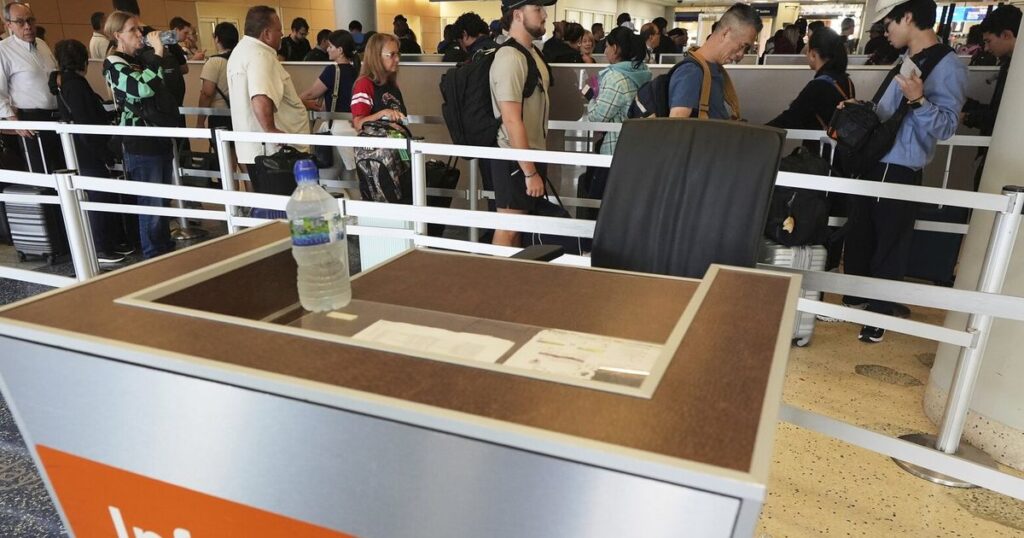(Bloomberg) — Flying Blue, the joint loyalty program of Air France and KLM, soared to the top of Point.me’s 2025 global airline rewards rankings for the second year in a row.
Point.me, a subscription-based flight search platform that helps travelers find and book airline award flights using points and miles, evaluated 59 programs worldwide through Aug. 1. Using qualitative and quantitative data from more than 22 million searches and more than 500 million search results, Air France — KLM’s Flying Blue retained the top spot, followed by American Airlines Group’s AAdvantage program and Alaska Air Group’s Mileage Plan.
“Looking at the industry as a whole, these are the most rewarding programs, most globally competitive programs and the programs that are investing in loyalty and want your business,” says Tiffany Funk, president and co-founder of Point.me.
Flying Blue achieved a score of 92.38 out of 100, excelling in 5 of the 8 categories weighted by their impact on the average traveler, including ease of earning miles, partner opportunities and redemption experience. While the program is base in Europe, Flying Blue is growing voraciously in the US market, focusing on expanding their transfer partners.
“They’ve made some really conscientious and interesting decisions around how they’re balancing award inventory versus pricing,” Funk says. Of loyalty programs in general, she continues, “We hear a lot of frustration. Our aim with this is to be able to break it down again very quantitatively.”
“Offering an attractive program allows Flying Blue to broaden its reach, captivating travelers and fostering loyalty, even among those who have yet to experience our airlines firsthand,” said Benjamin Lipsey, president of the program for Air France-KLM, in the statement. In June, Air France-KLM cut trans-Atlantic fares to boost bookings among cost-conscious coach passengers, and reported in July higher than expected second-quarter earnings.
The concept of frequent flyer programs dates back to Texas International Airlines’ in 1979 followed by American Airlines’ AAdvantage in 1981. Originally designed to influence travelers behavior and reward repeat business with straightforward paths to free flights, lounge access and cabin upgrades now nets carriers billions of dollars a year.
Both American and Delta Air Lines have seen significant growth in revenue from selling loyalty points to credit card companies and other partners. Delta made $7.4 billion from its American Express Co. partnership, which it expects to grow to $10 billion over the long-term; in some cases airlines make more money selling miles than seats.
But as profitable as they might be, they have become less generous for consumers, as airlines have moved to revenue-based earnings models, demanding more spending for fewer benefits. Under this model, carriers still have to strategize to keep the customers, the business and the partners in a “win-win-win” situation, according to Funk.
What travelers have decried as “bait and switch” tactics led to September 2024 inquiry by the US Department of Transportation into United, Delta, American and Southwest Airlines’ rewards programs. It looked into how their earned points may have been devalued over time and how dynamic pricing makes it harder for customers to predict how far their points will go.
“We know that we’re moving into a period where there are a lot more leisure travelers than there ever have been. We are in a shifting period in terms of consumer purchasing power. And so what we’re very much looking at is how are programs either responding or being proactive there,” Point.me’s Funk says.
For instance, Alaska’s new airline loyalty program, Atmos Rewards, is expected to launch in 2026 and offer members the flexibility to select their preferred method for earning award points: distance flown, ticket price or number of flight segments. Members will be able to adjust their earning preference once annually. Its current mileage plan holds the third spot in Point.me’s list, rising from No. 7, based on its redemption value and award availability, and international award pricing to Asia and Oceania business and economy seats.
American Airlines’ partnership with Citigroup elevated them four spots to No. 2 given it’s now easier to earn miles. “They’re also the only program we evaluated that allows consumers to hold award flights online and then ticket that flight online without having to make a phone call,” Funk says.
Virgin Atlantic Airways’ Flying Club jumped up to the fourth spot, supplanting British Airways after their program came under fire earlier this year after they introduced a dynamic award pricing model for flights. Rounding out the top five is United Airlines Holdings Inc.’s MileagePlus program.
More stories like this are available on bloomberg.com
©2025 Bloomberg L.P.

